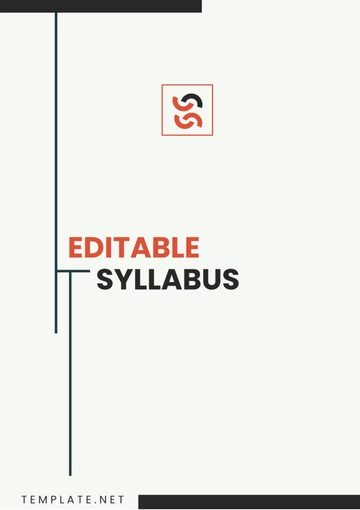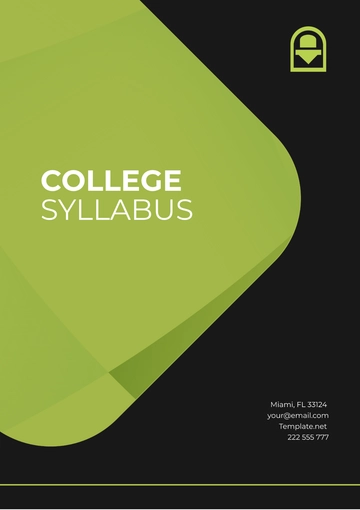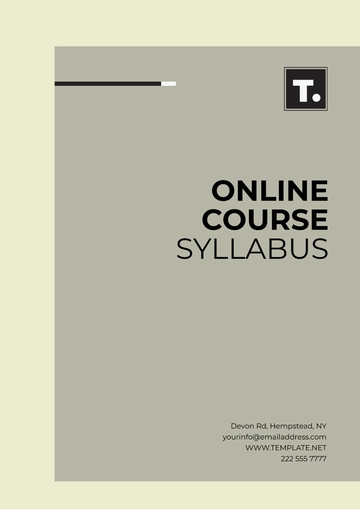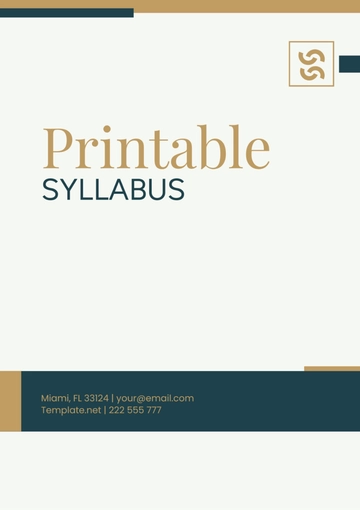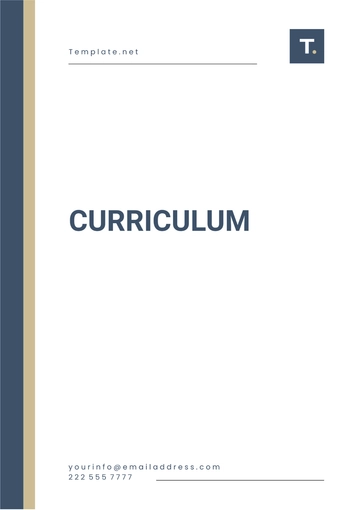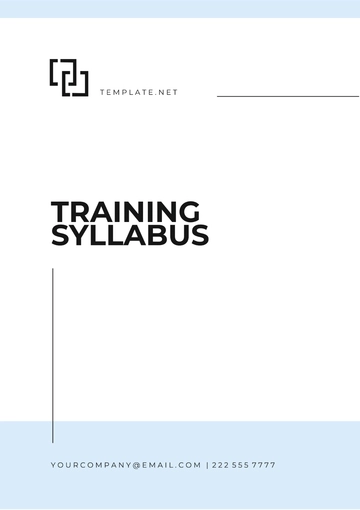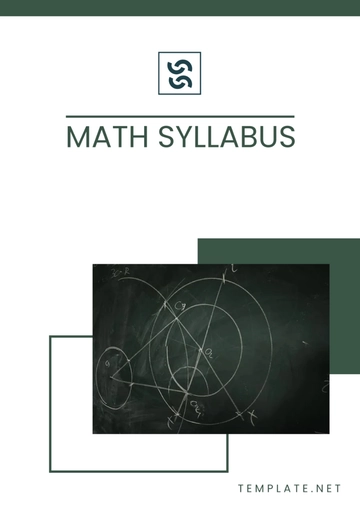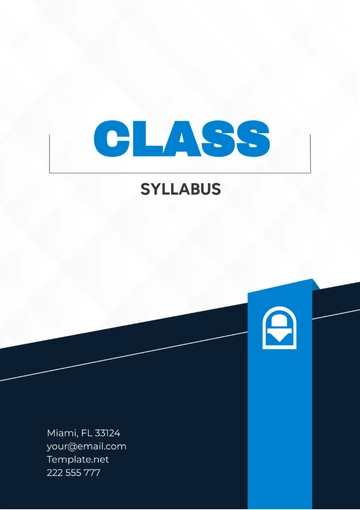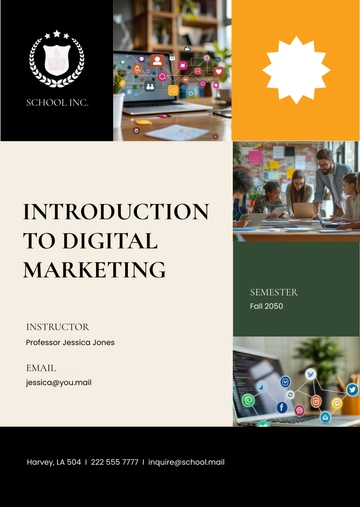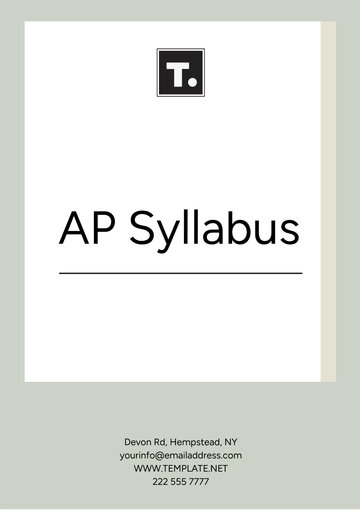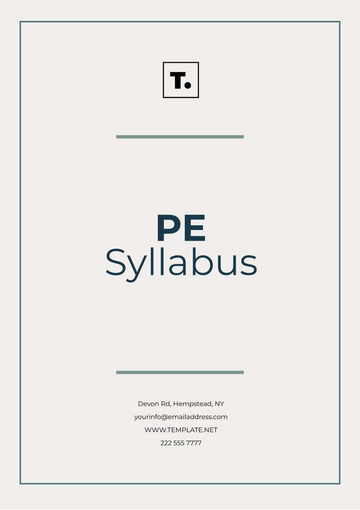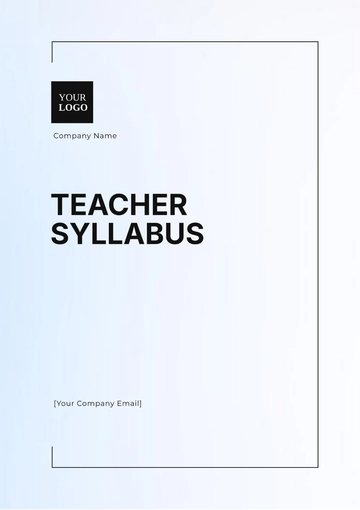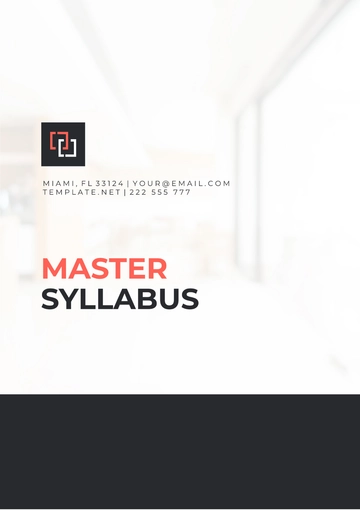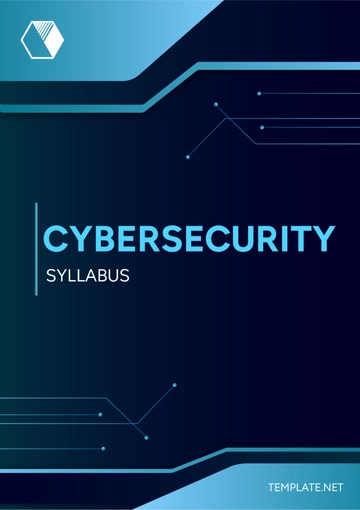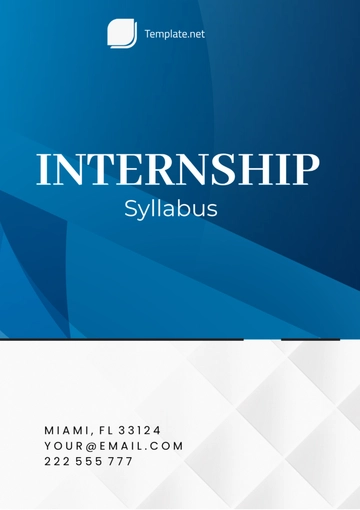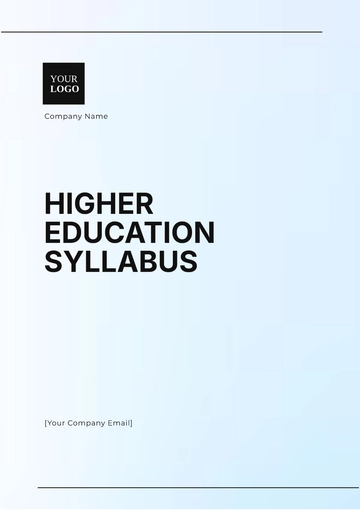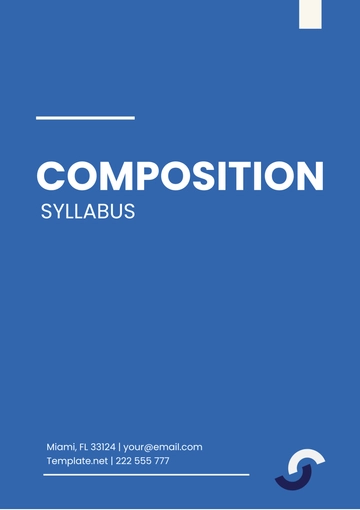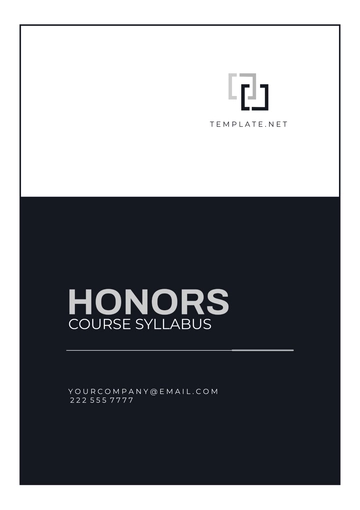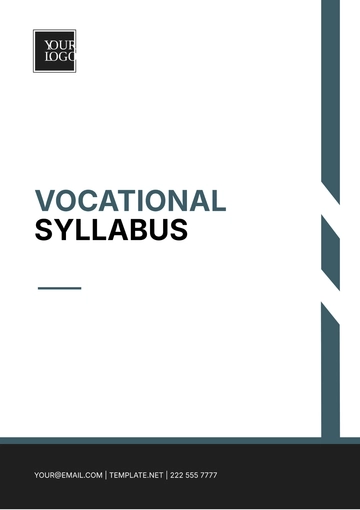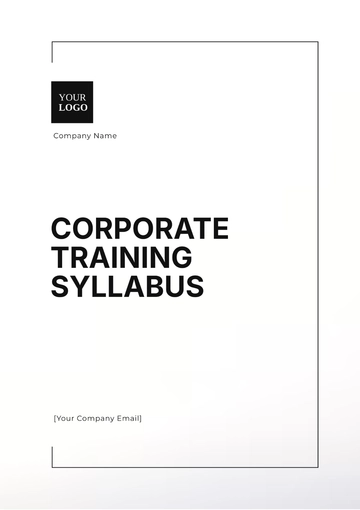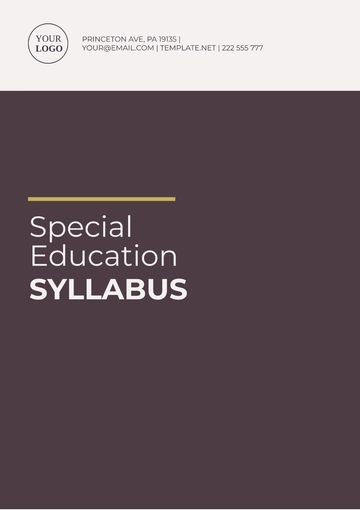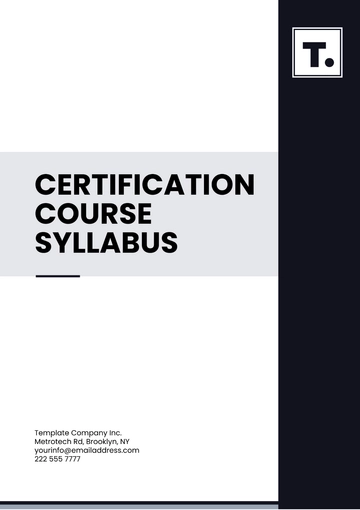Free Back To School Chemistry Syllabus
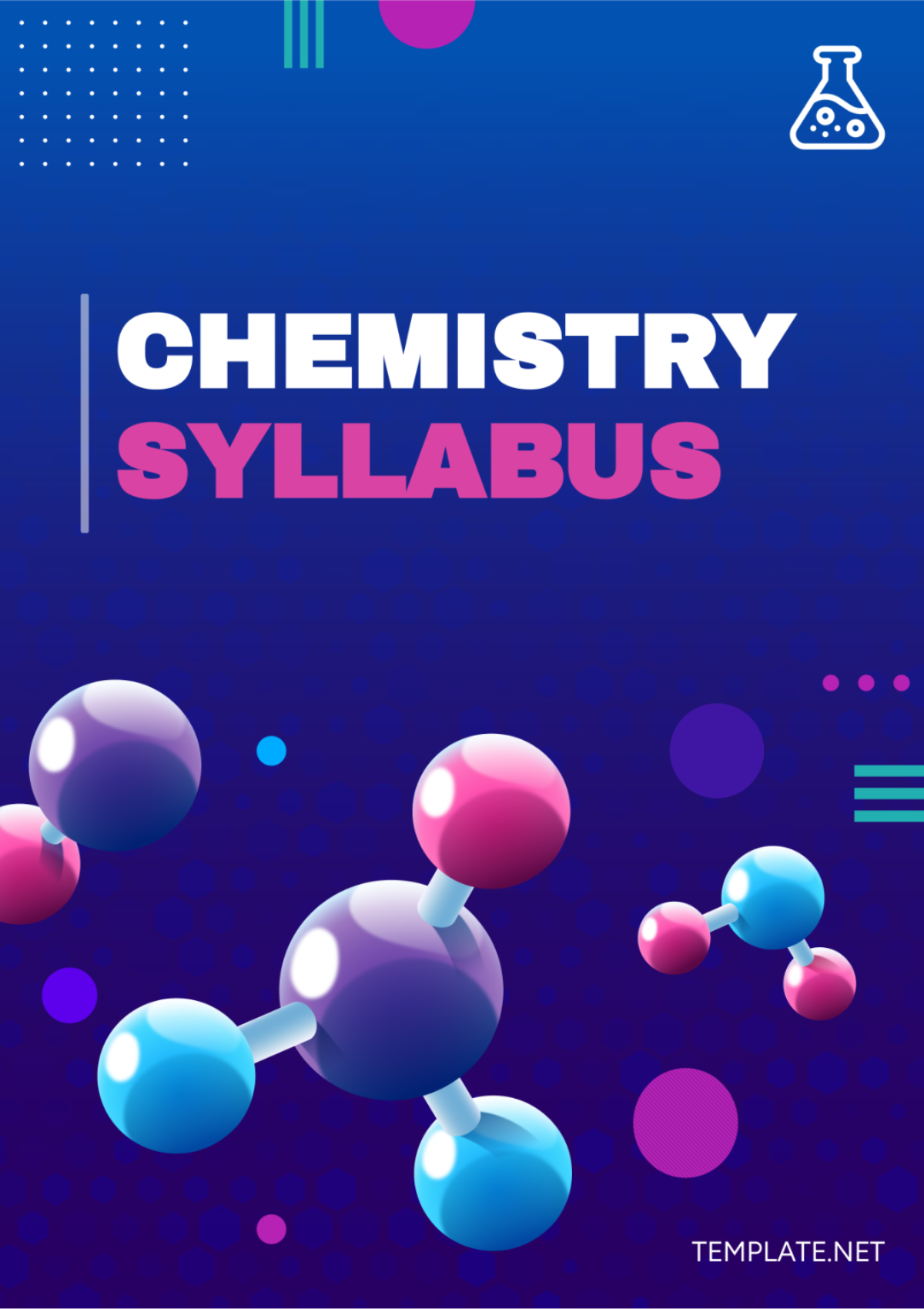
Chemistry Course
Course Title | [COURSE TITLE] |
Course Code | [COURSE CODE] |
Instructor Name | [YOUR NAME] |
[YOUR EMAIL] | |
School Hours | [OFFICE HOURS] |
Class Location | [CLASS LOCATION] |
Class Time | [CLASS TIME] |
Class Duration | [DATE] - [DATE] |
1. Course Description
Welcome to Chemistry! This course explores the intricate world of chemical science, examining the fundamental principles governing matter and its transformations. Students will delve into topics such as atomic structure, chemical bonding, stoichiometry, and the behavior of gases, liquids, and solids. Through captivating lectures, dynamic demonstrations, and hands-on laboratory experiments, students will uncover the underlying principles that govern chemical reactions and their applications in everyday life. Join us as we embark on a journey of discovery, exploring the fascinating realm of chemistry and its profound impact on our world.
2. Instructor Information
Instructor: [YOUR NAME]
Contact Information: [YOUR EMAIL]
Office Hours: [OFFICE HOURS]
3. Learning Objectives
Develop a deep understanding of fundamental concepts in chemistry.
Apply chemical principles to solve real-world problems.
Enhance critical thinking and analytical skills through hands-on experimentation.
Cultivate an appreciation for the role of chemistry in various scientific disciplines and everyday life.
4. Course Schedule
Week | Topic | Activities and Assignments |
|---|---|---|
1 | Introduction to Chemistry |
|
2 | Atomic Structure and the Periodic Table |
|
3 | Chemical Bonding |
|
4 | Stoichiometry |
|
5 | Gas Laws |
|
6 | Solutions and Solubility |
|
7 | Acids, Bases, and pH |
|
8 | Chemical Kinetics and Equilibrium |
|
9 | Thermochemistry |
|
10 | Electrochemistry |
|
5. Required Reading and Materials
Textbook: "Chemistry: The Central Science" by Brown, LeMay, Bursten, Murphy, and Woodward
Lab Manual: "Laboratory Experiments in General Chemistry" by Wentworth
Safety Equipment: Safety goggles, lab coat, and closed-toe shoes
Additional Materials: Notebook, scientific calculator, and writing utensils
6. Assignments and Assessments
Weekly quizzes on lecture material and lab procedures
Laboratory reports documenting experimental procedures, results, and analysis
Midterm and final exams covering lecture and lab content
Group projects exploring applications of chemistry in industry or research
7. Course Policies
Attendance is mandatory for all lectures and laboratory sessions.
Late assignments will be penalized unless prior arrangements have been made.
All laboratory experiments must be conducted in accordance with safety guidelines.
Respectful behavior and academic integrity are expected at all times.
8. Grading Policy
Category | Weight |
|---|---|
Quizzes and Homework | 20% |
Laboratory Reports | 30% |
Midterm Exam | 20% |
Final Exam | 30% |
9. Additional Resources
Online tutorials and interactive simulations
Supplemental readings and videos on advanced topics
Academic support services and tutoring resources
10. Academic Integrity
Academic integrity is crucial and students must uphold ethical standards during this course. Severe penalties will be imposed for any cheating, including plagiarism and unauthorized collaboration. Understand and apply proper citation guidelines when utilizing external sources. Consult the instructor about any academic integrity queries.
11. Accommodations for Students with Disabilities
Students with documented disabilities have the right to request reasonable accommodations to ensure equal access to course materials and activities. If you require accommodations due to a disability, please contact the instructor as soon as possible to discuss your specific needs. It's important to provide documentation of your disability to the appropriate office at the institution in order to receive accommodations promptly. The instructor will work with you to provide necessary accommodations and support to facilitate your success in the course.
12. Communication Guidelines
Effective communication is vital for successful learning. Students should openly communicate with their instructor and classmates. Contact the instructor for any queries, doubts, or clarification with timely responses guaranteed. Keep an eye on your email and course platform for important updates.
13. Course Evaluation
Your feedback is essential in helping us improve the quality of this course for future students. At the end of the semester, you will have the opportunity to complete course evaluations anonymously. Your honest feedback regarding the course content, instructional methods, and overall learning experience is greatly appreciated. Please take the time to provide constructive feedback that will assist us in making necessary adjustments to enhance the learning experience for future students. Your input is invaluable, and we thank you in advance for your participation in the course evaluation process.
Disclaimer
The information in this syllabus may change at the instructor's discretion. Students are responsible for staying updated on any modifications. This syllabus serves as a guide and does not constitute a binding contract. The instructor reserves the right to adjust assignments, assessments, and course schedule as needed. By enrolling, students agree to adhere to the policies outlined herein.
- 100% Customizable, free editor
- Access 1 Million+ Templates, photo’s & graphics
- Download or share as a template
- Click and replace photos, graphics, text, backgrounds
- Resize, crop, AI write & more
- Access advanced editor
Introducing the Back To School Chemistry Syllabus Template from Template.net. Crafted with educators in mind, this editable and customizable template offers seamless integration into your curriculum. Effortlessly tailor lessons with our Ai Editor Tool, ensuring a dynamic and engaging learning experience. Upgrade your syllabus today.

